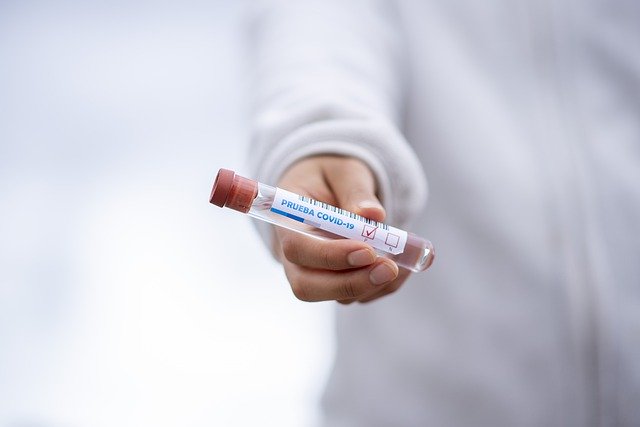Skilled nursing operators and infectious disease experts have expressed optimism about the government’s push to send point-of-care testing tools and test kits to facilities across the U.S.
But they also emphasize that it’s one only tool among many that SNFs need to be deploying as they try to keep COVID-19 out of their facilities.
The testing initiative, announced by Department of Health and Human Services (HHS) assistant health secretary Admiral Brett Giroir on Tuesday, will send the Quidel Sofia and Sofia 2 Instruments and BD Veritor Plus Systems — along with associated test kits — to 2,000 nursing homes in COVID-19 hotspots starting next week, with other SNFs to receive their devices after that point.
The tests themselves have to be matched to their devices; in other words, a BD testing device will only take BD test kits, Giroir said on a call with reporters on Thursday.
However, he emphasized that the BD and Quidel platforms are common for diagnostic purposes in health care settings outside of COVID-19, for illnesses like flu or strep throat. And though production schedules for both companies “are just getting online,” Giroir reiterated that the goal is to start shipments to nursing homes in COVID-19 hotspots by next week.
HHS will be sending an initial allotment of tests to cover every nursing home resident and all employees once a week for approximately four weeks, Giroir said. After that, BD and Quidel will prioritize nursing home requests for replacement tests through “a concierge service,” he added, noting that the companies have committed to this.
“After we send the first allotment, we want the commercial market to work,” Giroir said. “These are not upstart companies. These are very mature companies with distribution networks around the country.”
These devices could also be used to test for the flu or other illnesses, he added.
The antigen tests themselves detect fragments of proteins on or within the virus by testing samples collected from the nasal cavity via swab, according to HHS.
This type of test has some perks relative to the molecular polymerase chain reaction (PCR) COVID-19 tests, Morgan Katz, an assistant professor of medicine at Johns Hopkins University School of Medicine, told Skilled Nursing News; while the PCR tests are “pretty reliable,” lab backlogs have led to delays in getting the results.
“You can run it very quickly, really, on site and get turnaround time in as little as a few minutes,” she told SNN on July 15. “It’s rapid, it’s less expensive, but it is less reliable because you’re not looking exactly for that portion of RNA, and you may not be able to capture that particular protein on the outside of the virus.”
But for nursing homes, the turnaround time is of paramount importance, she emphasized. Any turnaround time greater than 24 to 48 hours is a bad option in that setting, especially if there’s an active outbreak.
Giroir noted in a call with operators Wednesday that while there is a slightly higher rate of “false negatives” with antigen testing, the positivity results are almost completely reliable with “almost 99-plus-percent specificity.”
Katz agreed.
“In general that is true — these antigen tests are more specific, meaning if you get a positive it is a true positive,” she told SNN when asked about Giroir’s assessment of their accuracy in an e-mail on Thursday. “Where they lack is in sensitivity — meaning they may miss some positive cases.”
From her vantage point, antigen tests are “really great for screening purposes,” since they’re ideal for regular surveillance of staff members, residents and possibly, in due time, visitors.
But this is truer in settings without outbreaks, Katz noted.
“It’s not a great option in a setting when your suspicion is higher,” she explained. “What I mean by that is, if you know that you have a positive case in your facility, and you know that it is an outbreak, potential outbreak situation, you would really want to confirm any negative with a repeat test to make sure that that is a true negative and not a false negative.”
This is a point Giroir made in the Wednesday call, advising SNFs to treat negative results for residents with a suspected case as presumptive until a PCR test can be secured.
There’s another consideration for SNFs as they get ready for the test kits to arrive: how they collect and process the samples.
According to Philip Christian, the chief medical officer at the Miramar, Fla.-based clinical laboratory American Health Associates, this is paramount for getting the best results.
“I wholeheartedly agree that antigen test specificity provides invaluable diagnostic information,” Christian told SNN via e-mail on Thursday. “However, variables such as specimen collection technique and pre-analytic handling are critical to ensuring the stability and integrity of specimens presented to the molecular laboratory for analysis. An essential component of obtaining the highly touted 99% test specificity, is ensuring that focused attention is given to the quality of each step in the overall process … from swab in the nose to result on the chart.”
But even with those considerations, Katz was unequivocal about the benefits of the testing effort.
“This is a huge win for nursing homes, regardless,” she said. “Even though it’s a little bit less sensitive, they’re still going to have in these hotspots where we have much more concern. They’re still going to have the ability to identify if they’re starting to have transmission in their facility.”



